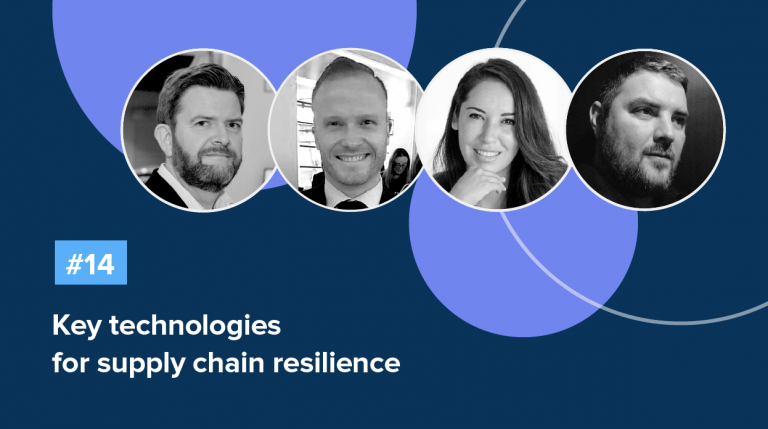Forbes: Five Tech Trends To Watch In 2022
The global pandemic has continued to turbocharge and accelerate the adoption of several emerging technologies.
From electric vehicles to the technology that is sending billionaires into space, Mergermarket has identified five trends likely to drive M&A for the technology sector in 2022.
#1 Creaky supply chain to drive dealmaking
Logistics and supply-chain-management technology should see healthy deal activity in 2022 following a year when stimulus-fueled consumer demand strained the global flow of goods.
“Retailers, manufacturers [and] food, they’re seeing the risk” of insufficient supply chain capacity, said Jonathan Savoir, CEO, and co-founder of supply chain platform Quincus. “Delays cripple retail operations and your bottom line. It will accelerate investment and acquisitions.”
Large logistics companies like Penske Logistics and DHL are likely to prowl for partnerships and acquisitions of growing supply chain software and hardware companies.
Supply chain tech company Overhaul Group, based in Austin, Texas, has fielded approaches from strategic suitors in the logistics and shipping industries, according to CEO and co-founder Barry Conlon, while food supply chain tech company Journey Foods, also based in Austin, has received frequent PE pitches.
Dealmaking won’t be limited to the logistics and shipping industry.
Investments and acquisitions are expected from consumer products companies like Procter & Gamble, and food and agricultural strategics like Nestlé, Dole Food and Del Monte Foods, Savoir said. “It’s about helping connect the supply chain, upgrading logistics provider [and] retailer systems, building interconnectivity and data exchange platforms.”
Emerging designers of commercial electric vehicles (EVs) and related technology will weigh mergers with special-purpose acquisition companies (SPACs), acquisitions and sizeable capital raises in 2022.
This EV growth will be further fueled by the $7.5 billion earmarked for EV charging technology in the recently passed U.S. infrastructure bill.
Some start-up specialty EV-related businesses considering a SPAC merger this year include lithium-ion battery recycler Battery Resourcers and China-based PIX Moving, which builds self-driving chassis for low-speed autonomous vehicles.
SigmaSense, a provider of touch screen technology that is planning to apply its system to the EV space in 2022, will consider a SPAC if it has started generating revenue by 2023. It is planning a $30 million to $40 million capital round soon.
Despite some market predictions that passenger EV manufacturers will pursue public debuts following the highly successful $13.7 billion November float of electric truck startup Rivian, a sector advisor expects smaller, specialty commercial vehicle makers like Tropos Technologies, which offers low speed, compact utility vehicles, to be likelier SPAC or acquisition candidates. Full-sized passenger vehicles are more expensive to build and harder to bring to market, the advisor explained.
Some SPACs have run into trouble since their public debuts. Workhorse reported an $81 million loss in its third quarter earnings last year, mostly due to the recall of its C-1000 vehicles. Lordstown Motors is currently under investigation by the U.S. Attorney’s Office, following claims it misled investors.
Ideanomics CEO Alf Poor noted that big auto groups like Ford and General Motors could “start to move with their checkbooks when they see some of the [specialty] companies maturing. Some of these [smaller] guys could consolidate to survive as well.”
by Sam Weisberg (sam.weisberg@iongroup.com)
#3 BNPL deals on tap
The buy now, pay later (BNPL) sector has seen a surge of interest and transactions that many professionals and insiders expect to continue in 2022.
BNPL services allow customers to pay off purchases in installments — typically four — without being charged interest or undergoing a credit check. Spending using the payment option will grow four-fold to $995 billion by 2026, according to a recent report by Juniper Research.
The four major global companies in the space — U.S.-based Affirm, Australia-based Afterpay, Sweden-based Klarna and Australia-based Zip — are among dozens of other players. The BNPL market should expand into transactions outside of e-commerce and into verticals including non-elective medical and home services like HVAC repair, Matt Risley, partner at QED Investors, told Mergermarket.
U.S.-based Sezzle, Zip, Australia-based Openpay and New Zealand-based Laybuy are seen as potential acquisition targets.
Klarna and Affirm remain a longshot to be bought and are widely viewed as potential buyers, as are large banks like JPMorgan Chase, Citi, Capital One, Citizens Bank and U.S. Bank. Large tech companies such as Meta Platforms, Alphabet (Google) and Amazon could also be consolidators in the space as could card networks like Visa, Mastercard, American Express and Discover.
Increased regulation could come into play in 2022. The Consumer Financial Protection Bureau opened inquiries into Affirm, Afterpay, Klarna, PayPal and Zip in December over concern about consumers accumulating debt, regulatory arbitrage and data harvesting.
One industry executive said he wouldn’t be surprised to see regulations requiring more disclosures at checkout, caps on consumer fees following missed payments or for those that charge interest on all payments, and mandatory reporting of repayment behavior to credit agencies. However, the exec said regulation is unlikely to deter M&A activity in the sector.
by Rachel Stone (rachel.stone@iongroup.com)
#4 To infinity and beyond
Ongoing technological advancements will continue to fuel growth in the space industry after a monumental 2021.
Last year, Blue Origin and Virgin Galactic completed their first space-tourism focused trips, while SpaceX’s Starship finally launched for an entire successful mission, and NASA landed its Perseverance rover on Mars. Morgan Stanley’s space team estimated the roughly $350 billion global space industry could grow to as much as $1 trillion by 2040.
2021 also saw a significant number of space companies going public through SPAC mergers. Whether that continues at such a rampant pace in 2022 remains to be seen. Last month, Deep Space Acquisition I, a blank-check company targeting space tech, filed for a $210 million IPO.
If the sector continues its frequent use of SPAC mergers, it could lead to industry consolidation as they acquire suppliers for their technologies or employees.
More technologies are expected to be incorporated into space operations. Space and defense customers are increasingly using WiBotic’s products and technology, CEO Ben Waters told Mergermarket. WiBotic is partnering with Astrobotic on a near $6 million NASA contract to overcome challenges associated with charging robots on the lunar surface.
However, the space sector might not be able to defy gravity forever, said one investor with a growth equity firm that specializes in the federal government market.
“It’s very hard for us to find a company that makes sense from a value standpoint,” he said. “But a lot of folks are talking about space.”
by James Ward (james.ward@iongroup.com)
#5 Plug into a hot gaming market
Investors have taken notice of surging gaming interest, and acquisitions are being fueled by capital being pumped into the market.
The huge market opportunity is perhaps the biggest lure – Newzoo estimates 2021’s global games market will have topped $180.3 billion of revenue, with mobile games capturing $93.2 billion, followed by console gaming ($50.4 billion) and PC games ($36.7 billion).
Mobile games are ripe for consolidation because they are more accessible than other types of gaming, an industry executive said. It is less time and money intensive to buy these assets than to build games internally, he added.
Earlier this month, Microsoft announced that it would acquire Activision Blizzard and all of its extensive PC, mobile, and platform game titles for $68.7 billion. Mobile game developer Zynga also announced last week a $12.7 billion sale to Take-Two Interactive, along with a 45-day go-shop period that allows other companies to make bids.
Another possible target is Israel-based Moon Active, which is responsible for popular mobile gaming titles like Coin Master, the industry executive said. Suitors may come calling before the company’s valuation gets too high, he said. In November, Moon Active announced a $300 million funding round at a $5 billion valuation.
“If you want to be competitive in the game space, and grow as fast as you can, it makes more sense to buy small companies and small teams,” INK Games CEO Robert Towles recently told Mergermarket. The video game and influencer platform plans to scout for gaming buys in 2022.
Subscribe to keep up with our latest news








